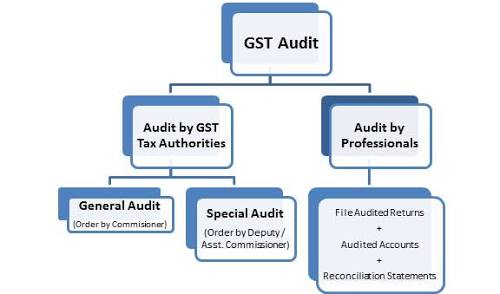1. Introduction
1.1 The concept of audit by a Chartered Accountant in the area of Indirect Taxes was confined to State Value Added Tax and Central Sales Tax laws of certain States. In Central Excise and Service tax only in case of suspicion of undervaluation or excessive credit special audits were prescribed (not much used) which continue in GST. Therefore, Chartered Accountants engaged in rendering professional services in the areas of State taxes would be familiar with those provisions. The GST law has subsumed several Indirect Tax laws – among others, it subsumed Central Excise, Service Tax, Luxury Tax, Entertainment Tax, VAT/CST, Entry tax laws etc.; certain levies under the Customs laws have also been subsumed into the GST laws.
1.2 It would be relevant to note that the skill sets acquired in the understanding of the statutes that have been subsumed into the GST laws would help in better understanding of the GST laws since several provisions of the Central and State enactments have been replicated (fully or partially) in the GST laws – say, for instance, the provisions of Place of Supply of Services, Time of Supply of Services, Valuation of Supply Rules, etc. That being said, one needs to exercise caution in reading and understanding the subtle departures or changes in the statute in comparison with the erstwhile legislations, in which case, one has to enhance the understanding of the fully taken forward provisions. He also needs to unlearn the old laws and learn the GST laws afresh for a complete understanding of the taxing statute.
1.3 In terms of Section 2(13) of the CGST Act, 2017, “audit” means the examination of records, returns and other documents maintained or furnished by the registered person under this Act or the rules made thereunder or under any other law for the time being in force to verify the correctness of turnover declared, taxes paid, refund claimed and input tax credit availed, and to assess his compliance with the provisions of this Act or the rules made thereunder.
1.4 The following three types of audits are envisaged under the GST laws:

– Discrepancy with the amount of credit / cash being utilized to off-set the liability;
– Duplication in invoices.
Audit Exercise-Advantages
1.12 To an assessee –Normally, the tax department conducts an audit or assessment after the close of a financial year. It is customary to expect that the departmental audit / assessment is conducted after the close of the financial year except in cases where investigations, inspections or special audits are taken up. Naturally, any levy of additional taxes either due to non-compliance or incorrect comprehension of the complex tax laws would result in taxes plus consequential interest and penalty. GST being a tax on supplies, would tend to wipe out the top line in such cases.
1.13 Given the time lag between the date of committing an error and the date of ascertaining / rectifying such error, the consequence in such situations can be quite alarming in as much as the very liquidity of an entity can be under jeopardy. This would be the scenario, even where there is no mala fide intent on the part of the assessee to evade or avoid taxes that are legally due to the Government. Consequences that can arise in respect of issues that arise on account of classification or interpretation or judicial pronouncements can be disastrous.
1.14 It is a basic fact, that no assessee would be in a position to collect such additional tax levies from customers long after the transaction stands closed. On the other hand, there may also be cases where eligible credit may not have been availed, and it cannot be claimed at a later date since it is either time barred or claims have not been preferred through the returns.
1.15 Therefore, where a review is undertaken periodically, the discrepancies will be noticed at the time of omission / commission and corrective measures can be taken in a timely manner. Thus, it would lead to maximization of credit availment and minimization of tax / other outgoes owing to proper planning and timely compliances.
1.16 To the department / Government – The tax department / Government would also stand to benefit from a periodic review by way of receipt of information that are duly classified, correct determination of total and taxable turnovers, review of rates of taxes, proper application of relevant notifications, circulars, clarifications, Government orders and adherence to the tax compliances. The audit report would also take into cognizance the relevant judicial precedents that are applicable to the registered person. Unlawful claims for benefits / unethical tax management practices adopted by the assessees would be filtered out, since tax professionals would intimate and persuade the assessees of the consequences of such practices, and also bring out the discrepancies in their reports. When audits are performed by tax experts, the time spent by the tax authorities on the scrutiny would be minimized, thereby allowing them to utilize the available time for more meaningful and productive purposes. Voluntary compliances by the assessee would encourage the department / Government to simplify the law and procedures, and develop a mechanism for ease of doing business. It would be a win-win situation.
1.17 To the professionals –Tax Professionals are compelled to conclude the audits (mandated by statutes) in a time bound manner within a fixed period of time.
However, where auditees engage them to carry out periodic reviews voluntarily, the said tax professionals will be in a position to deploy experts and spend adequate time and efforts, in order to go through the records and documents in detail. This will help them to better understand the operations of the auditee, resulting in value addition. Instead of carrying out the audit at the end of the year, for all the assessees, a periodic audit will help the auditee in understanding the short-comings that can be duly adhered to within time and would, in a way, avoid any further consequences





